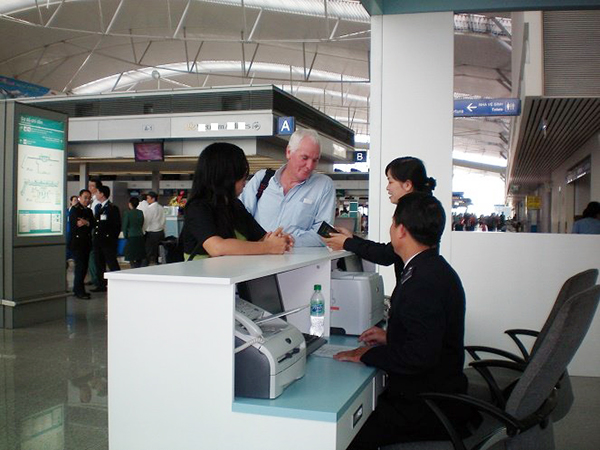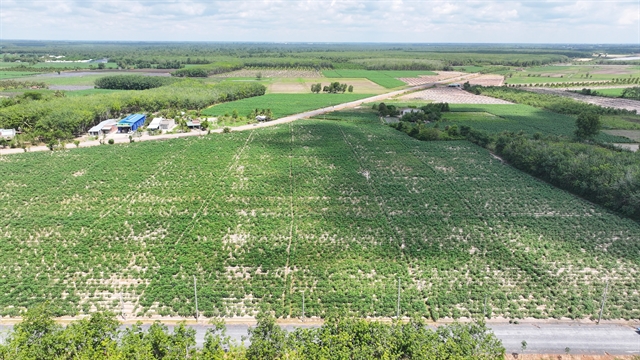 Economy
Economy

 |
| The need to amend the PIT law was more pressing when the civil servant salary increased from VNĐ1.49 million to VNĐ1.8 million, starting from the beginning of this month. |
HÀ NỘI — It is urgent for Việt Nam to amend the regulations on personal income tax (PIT), which have proven to be outdated and weighing on people, especially those struggling to make ends meet in major cities.
The need to amend the PIT law was more pressing when the civil servant salary increased from VNĐ1.49 million to VNĐ1.8 million, starting from the beginning of this month.
In the latest move, the National Assembly, in a resolution of the fifth meeting, asked the Government to study a plan to increase the deductions for family circumstances, together with a roadmap for salary reform.
The current deductions for taxpayers themselves were VNĐ11 million per month and VNĐ4.4 million for a dependent.
Although having increased twice from VNĐ4 million for tax-payers and VNĐ1.6 million for a dependent in 2009, the deductions were no longer appropriate amid rising living standards and costs.
Phạm Thu Hương, who lives in Hà Nội, said that the deduction of VNĐ4.4 million for a dependent was too low, adding that it took at least VNĐ6-7 million per month to raise a child in big cities like Hà Nội, including school fees and food expenses which were increasing.
Expert Đinh Trọng Thịnh said that the living standard was increasing, with higher needs for travel, entertainment, and better education, for example. Meanwhile, the deductions were fixed in accordance with inflation, which was unreasonable.
Under the established laws, the deductions would be adjusted when the consumer price index (CPI) increased by 20 per cent or higher.
Nguyễn Văn Được, general director of Trọng Tín Accounting and Tax Consulting Company, said that this regulation was no longer appropriate. The Government should be allowed to decide adjustments to the deductions when the CPI reaches a certain limit, he said, adding that the deductions should be based on the actual expenses of taxpayers.
Phan Phương Nam from HCM City University of Law said that when the salary increased, but the deductions were kept unchanged, salary-workers would be put under more pressure to pay PIT.
Nam said the deductions could be based on the base salary, which could be 3-4 times the base salary.
Paradoxes
The inappropriate family circumstance levels also deprived people of the opportunity to enjoy the social housing policies.
According to the HCM City Real Estate Association, under the Law on Housing 2014, people who must regularly pay PIT were not allowed to buy or rent a social home. This was a pressing issue when many must pay PIT since they had an income of a little bit higher VNĐ11 million per month, but the fact was that they were low-income earners in major cities and even struggling to make ends meet.
Recently, the National Assembly discussed the draft amended Law on Housing, which included the proposal that only workers who were not subject to PIT could buy a social house. And the proposal caused a stir.
Nguyễn Hữu Toàn, Deputy Chairman of the National Assembly Finance – Budget Committee, said that the proposal sounded unreasonable because it eliminated many cases who were in need of social housing support policies.
Many people must pay PIT but were struggling to make ends meet, he said, adding that with an income of more than VNĐ10 million per month, it was not enough to cover expenses in major cities.
Another paradox was that while many salary workers must pay PIT, many others, such as KOLs, YouTubers, TikTokers and Facebook users, who had huge incomes only had to pay PIT at low levels.
These people must pay value added tax (VAT) and personal income tax (PIT) following the presumptive taxation method, meaning a 5 per cent VAT tax rate and 2 per cent PIT on revenue.
Lê Đạt Chí from HCM City University of Economics said that the current PIT regulations were creating options for paying taxes for people with huge incomes from social networks and e-commerce. Meanwhile, salary workers had no other choice but to pay PIT following progressive taxation.
The current progressive PIT rates were from 5 per cent to 35 per cent with seven tiers, Chí said, remarking that the tiers were too close to each other, which did not encourage workers to seek higher wages because income increases would mean that they must pay at a higher tax rate. VNS




